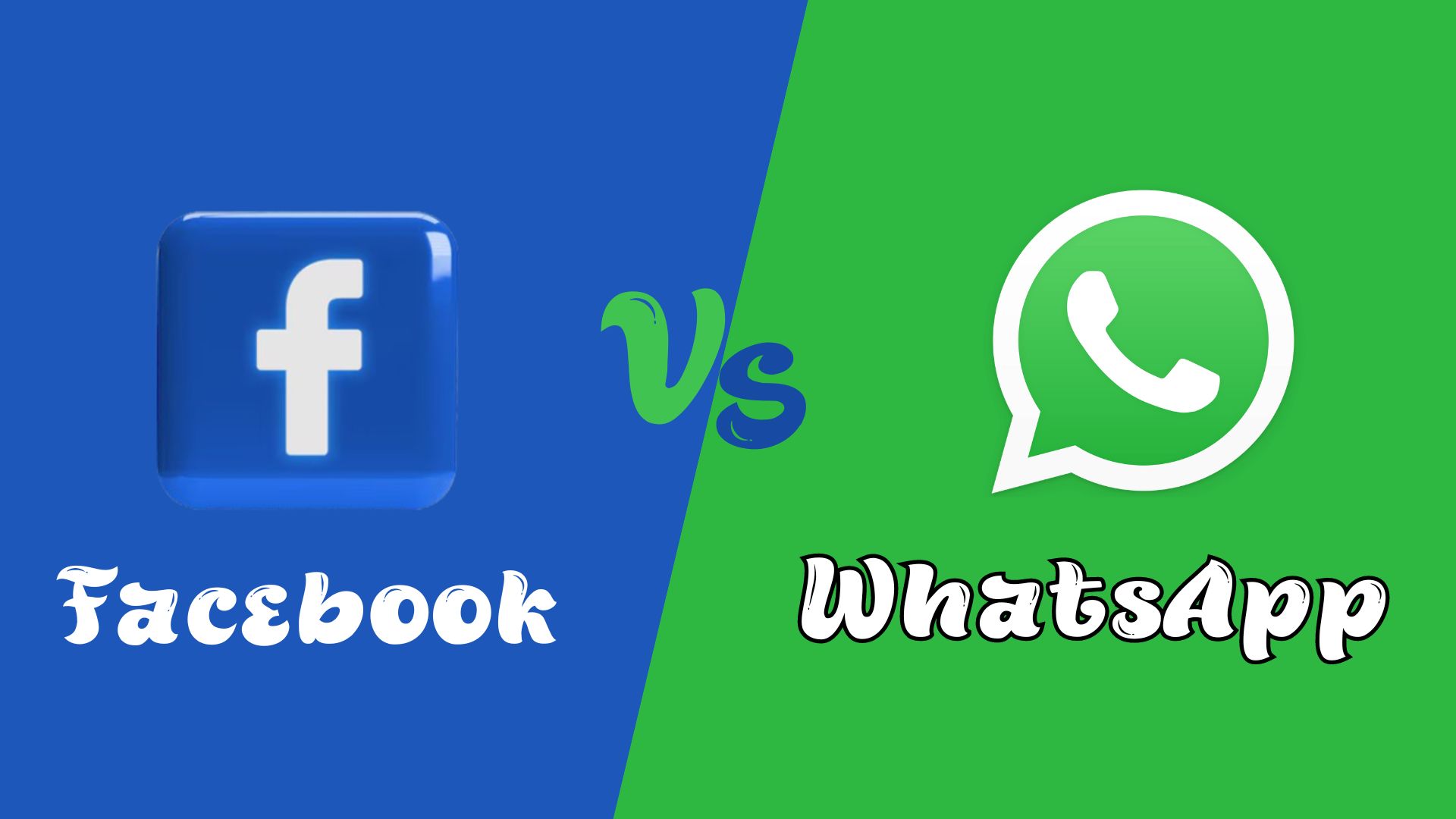In the realm of social media and communication apps, Facebook vs WhatsApp stand as two giants, each with its own distinct features and purposes. While both platforms are owned by Facebook, Inc., they serve different functions and cater to different needs. In this article, we’ll delve into the differences between Facebook and WhatsApp, exploring their features, user base, privacy concerns, and overall impact on society.
Introduction to Facebook and WhatsApp
Established in 2004 by Mark Zuckerberg, Facebook started as a platform for connecting college students. Over the years, it evolved into the world’s largest social networking site, boasting billions of active users worldwide. Facebook allows users to create profiles, share posts, photos, and videos, join groups, and connect with friends and family.
Founded in 2009 by Brian Acton and Jan Koum, WhatsApp emerged as a messaging app focused on simplicity and security. It allows users to send text messages, voice messages, images, and videos, as well as make voice and video calls. WhatsApp gained popularity for its end-to-end encryption feature, ensuring that only the sender and recipient can read the messages.
Features and Functionality- Facebook vs WhatsApp
As a social networking platform, Facebook offers a wide range of features beyond messaging. Users can create personal profiles with detailed information, join groups based on interests or affiliations, like and comment on posts, and follow pages of businesses, celebrities, and organizations. Facebook also incorporates features such as Events, Marketplace, and News Feed, providing a comprehensive experience for users.
In contrast, WhatsApp focuses primarily on messaging and communication. It provides a simple interface for sending text, voice, and multimedia messages, as well as making voice and video calls. WhatsApp groups enable users to communicate with multiple people simultaneously, making it a popular choice for group chats among friends, families, and coworkers. However, WhatsApp lacks the extensive social networking features of Facebook, such as profiles and pages.
User Base and Reach
With over 2.8 billion monthly active users as of 2021, Facebook remains the largest social media platform in the world. It appeals to users of all ages and demographics, spanning across countries and cultures. Facebook’s broad reach makes it a powerful tool for connecting people, sharing information, and fostering communities.
While WhatsApp has a smaller user base compared to Facebook, it boasts over 2 billion monthly active users worldwide. WhatsApp’s popularity is particularly pronounced in regions such as Latin America, Europe, and parts of Asia, where it serves as the primary mode of communication for many people. Its end-to-end encryption and cross-platform compatibility contribute to its widespread adoption.
Privacy and Security
Over the years, Facebook has faced criticism and scrutiny regarding its handling of user data and privacy policies. The platform has been embroiled in numerous controversies, including the Cambridge Analytica scandal, where personal data of millions of users was harvested without consent for political purposes. Despite efforts to improve privacy controls and transparency, Facebook continues to face challenges in maintaining user trust.
In contrast, WhatsApp has positioned itself as a champion of privacy and security. Its end-to-end encryption ensures that messages, calls, and shared media are secured from third-party interference, including WhatsApp itself. However, WhatsApp’s privacy stance came under scrutiny when it announced updates to its privacy policy in 2021, sparking concerns about data sharing with its parent company, Facebook. The controversy led to a backlash from users and prompted some to seek alternative messaging apps.
Impact on Society
As the dominant force in social media, Facebook has had a profound impact on society, influencing communication patterns, social interactions, and even political discourse. It has facilitated connections between people across the globe, enabling the spread of ideas, information, and movements. However, Facebook’s influence has also been marred by issues such as misinformation, polarization, and the proliferation of harmful content.
WhatsApp’s impact on society is primarily centered around communication and connectivity. It has transformed how people communicate with each other, providing a convenient and reliable platform for staying in touch. WhatsApp’s encryption feature has been particularly beneficial for users in regions with limited freedom of speech, allowing them to communicate securely without fear of surveillance or censorship. However, WhatsApp has also been used for spreading misinformation and inciting violence in certain contexts, highlighting the challenges of managing communication platforms at scale.
See Also – Facebook vs Snapchat
Conclusion
In conclusion, Facebook vs WhatsApp, despite being owned by the same company, serve different purposes and cater to different needs. Facebook is a comprehensive social networking platform, offering a wide range of features for connecting with others, while WhatsApp is a messaging app focused on simplicity and security. Both platforms have had a significant impact on society, shaping how we communicate, connect, and share information. However, they also face challenges related to privacy, security, and the spread of misinformation. As users, it’s essential to be aware of these factors and make informed decisions about the platforms we use and trust.

